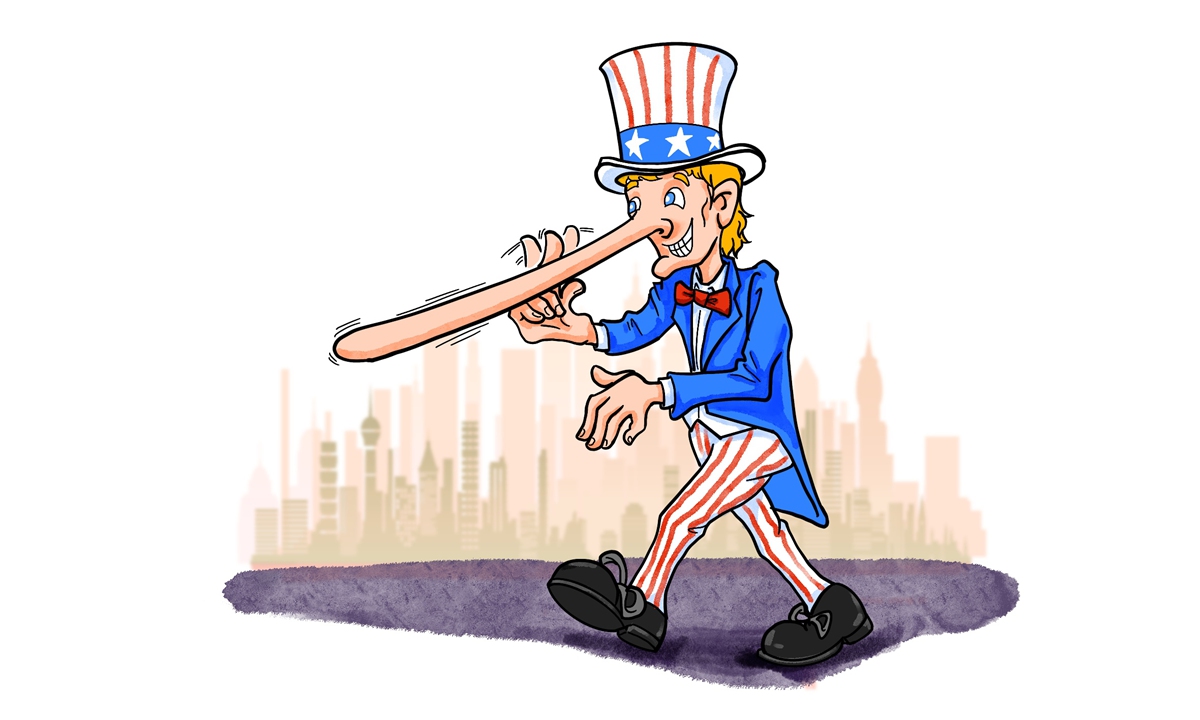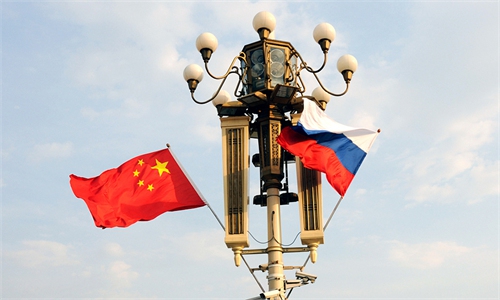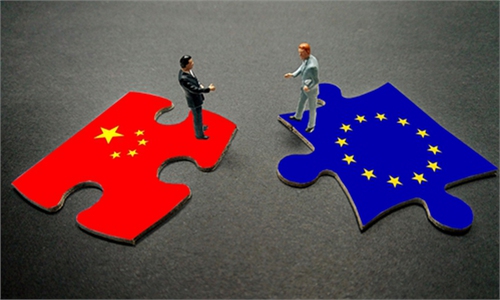COMMENTS / EXPERT ASSESSMENT
No ‘forced labor’ issue in China for US-led clique to address

Illustration: Tang Tengfei/GT
The newly installed US Trade Representative Katherine Tai has just finished her first round of calls with counterparts from US' major Western partners, and the head of the World Trade Organization (WTO), emphasizing topics on rebuilding alliances with partners; while unsurprisingly, didn't forget to vilify China using fabricated issues.Besides the cooked-up forced labor topic, Tai also called for joining hands to address so-called issues related to a "non-market economy" of China, hyping groundless rumors of the world's second largest economy so as to form a clique to contain its development.
Neither of the topics about China could hold water, but only a stunt for the US to gather benefit through the implementation of hegemony. The so-called allegations of "forced labor," or "human rights abuses" in Northwest China's Xinjiang Uygur Autonomous Region are monstrous lies deliberately fabricated and spread by some foreign die-hard China hawks.
The vicious intention lurking behind is to hold back the growth of China and related Chinese companies. Despite the country has repeatedly offered facts and truth, the anti-China forces cannot give up the ill-intended approach to slander China's development. However, the truth can never be denied that, with sustained social stability in Xinjiang, residents of various ethnic groups live harmoniously side by side and enjoy their work and life.
Similar logic falls within the groundless accusation of "non-market economy" of China. The concept of "non-market economy countries" does not exist in the multilateral rules of the WTO, and instead, it's the US always trying to formulate a self-interested standard and impose it on others.
With the new Biden administration taking office, Washington has shown intention to end previous US government's reckless confrontational approach, while replaced with tactical schemes to cajole others to vilify China. Seeing ideological prejudice extending to various public disputes and a possibility of the Western clique to take joint moves on certain topics, China would inevitably encounter worse external environment.
It's also clear that the Western world is now incapable to form a complete united front to confront China, especially after years of reckless obstruction over ties between the US and its so-called allies by the previous Trump administration, not to mention the colossal Chinese market which nearly no economy can afford to give up during the post-pandemic era.
Essentially it is the economic foundation determining the development prospect of a country or a region. China has been upholding peaceful coexistence principles and seeking common development with others. During the sudden onslaught of the coronavirus, the country has stepped up efforts to facilitate pandemic prevention by offering medical supplies and vaccines. Moreover, it will continue to be one of the major drivers behind the global economic recovery from the once-in-a-century health crisis.
Since China and the US are two countries with different social systems, it is understandable for the two to have differences or disagreements. What matters most is to manage them effectively through candid communication to prevent strategic miscalculation and avoid conflict and confrontation. Instead of obsessing with creating barriers, it's expected that the US will meet China halfway and remove its unreasonable restrictions on bilateral cooperation, including the additional tariffs imposed by the previous Trump administration over Chinese products.
The article was compiled based on an interview with Huo Jianguo, a vice chairman of the China Society for World Trade Organization Studies in Beijing, and former president of the research institute of China's Ministry of Commerce. bizopinion@globaltimes.com.cn


